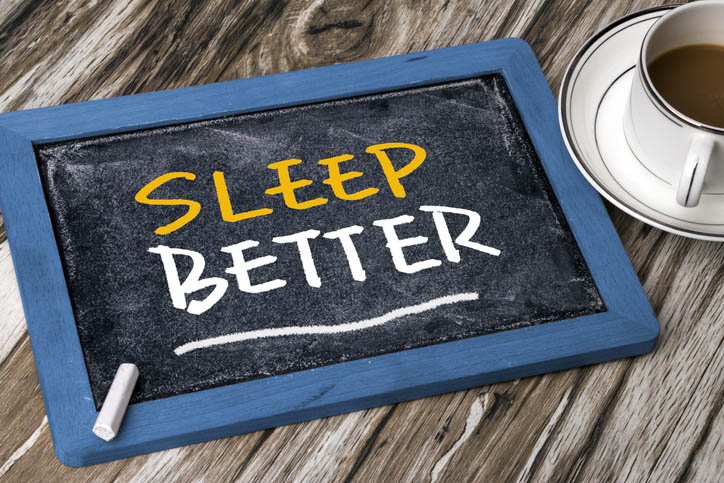The term “self-care” is a big umbrella that covers a ton of wellness topics, such as life-balance, stress relief, weight management, fitness, relationships, spirituality, and much more. It’s tough to pinpoint just one life arena you’ll want to make changes to in order to become happier and healthier. But it’s possible and may make your self-care journey easier.
Here’s a tip: Start with sleep.
Why Sleep Is So Important
This is probably the number one area where you can improve your health and well-being. Nurses are notorious for not getting enough sound sleep on a regular basis—odd shifts and rotating schedules don’t help the body to regulate rhythms. Fatigue is one thing but it’s worst when a sleep-deprived nurse actually nods off while at the bedside or on the road after a late shift. Obviously, that’s extremely dangerous—for you, your patients, and everyone near you.
Most American adults don’t meet the guidelines for sufficient sleep (seven to eight hours) and many of us consider it a luxury we can’t afford, or try to “bank” shut-eye by sleeping for 5 hours on work nights and 10 on days off. We like to think that getting along on little sleep is a sign of superhero strength and those who prioritize rest are weaklings. None of those beliefs are accurate. Here’s how you can take care of yourself, in spite of our hyperactive society’s mistaken take on rest and sleep.
The Basics of Sleep Hygiene
Chronic sleep deprivation and sleep disturbances, such as sleep apnea, can be improved by following good sleep hygiene protocols. Try these tips:
- Cut out caffeine later on in the day. (That includes certain soft drinks and chocolate, as well as coffee and tea.)
- Drink alcohol in moderation, or not at all, because it’s more likely you’ll wake at night after a drink or two.
- Another reason to stop smoking cigarettes: nicotine interferes with sound sleep.
- Finish your last meal of the day a few hours before bedtime so you’re done digesting.
- Don’t do heavy exercise late at night, though gentle stretching or yoga can be a restful entrée to sleep.
Setting the Right Environment for Rest
Digital sights and sounds make it harder to slow down and get ready for bed. Younger nurses, being social media natives, are especially prone to texting, tweeting, Pinteresting, and streaming movies in their bedrooms. Make it a rule to keep your smartphone, iPad, or other devices out of your bed. That way, you won’t be tempted by social media, news, or entertainment right up to the time you turn off the lights. Some nurses even set a digital curfew and power down devices two to three hours before bedtime.
When Your Mind is Too Busy to Turn Off
Some nurses find that the simple act of journaling before bed helps them quiet the worry, anxiety, and fears that may be keeping them awake. Nursing is an emotional occupation and there isn’t always an opportunity to process what happens during the day while on the job. That’s when a notebook and pen by the bed can be a curative. One of the principal researchers in the area of journaling and health is James Pennebaker, a psychology professor at The University of Texas at Austin and author of “Writing to Heal.” His studies have shown that expressive writing (journaling) is a simple and effective way to relieve stress while boosting both mental and physical health.
- Resumes, LinkedIn, and HR Portal Profiles, Oh My! - May 22, 2020
- Weight Management for Nurses: The Why’s and How’s of Losing or Maintaining Weight - February 18, 2020
- Mindfulness and Wellness Programs for Patients - October 14, 2019



